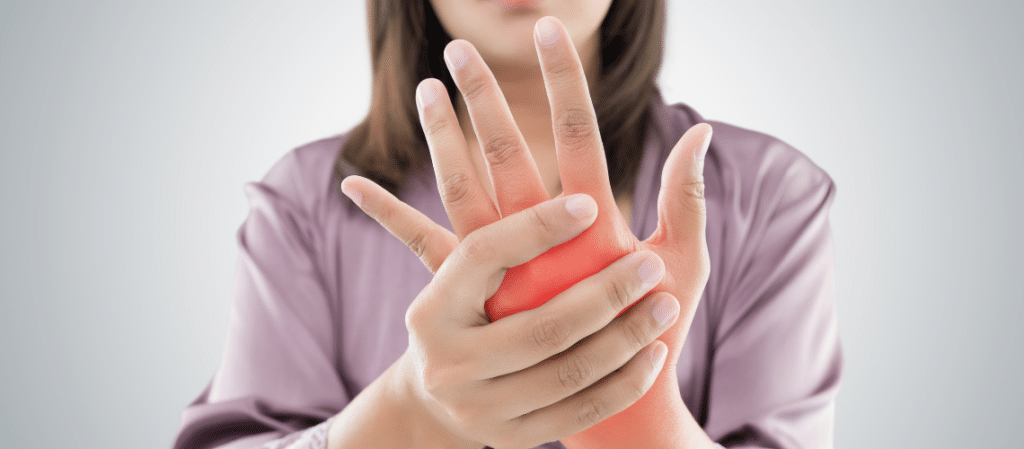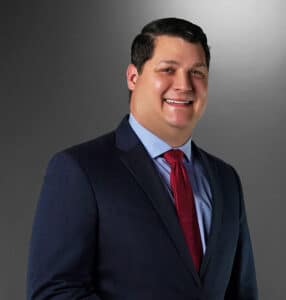
Hand injuries can occur due to various reasons, including accidents, sports injuries, repetitive strain, or underlying medical conditions. The hand is a complex structure comprising bones, muscles, tendons, ligaments, and nerves, making it vulnerable to a range of injuries.
In our latest blog article, we take a look at different types of hand injuries, as well as the myriad treatment options available. Keep reading to learn more!
Types of Hand Injuries
- Fractures: Fractures in the hand can involve the fingers, metacarpal bones, or the wrist. They may result from falls, impacts, or crushing injuries.
- Sprains and Strains: Ligament sprains and muscle strains are common in the hand, often caused by sudden twisting or stretching movements.
- Tendon Injuries: Tendon injuries, such as tendonitis or tendon ruptures, can affect hand function and mobility.
- Lacerations and Trauma: Cuts, puncture wounds, and trauma can damage tissues and structures in the hand, leading to pain and impaired function.
Treatment Options for Hand Injuries
RICE Method
- Rest: When dealing with a hand injury, it’s crucial to allow adequate rest for the affected area. Immobilizing the hand with a splint or brace may be necessary to prevent further damage and promote healing. Avoiding activities that strain the hand, such as heavy lifting or repetitive motions, is also recommended during the recovery period.
- Ice: Applying ice packs or cold therapy to the injured hand helps reduce swelling, inflammation, and pain. It’s essential to use a cloth or towel as a barrier between the ice pack and the skin to prevent frostbite. Ice can be applied for 15-20 minutes several times a day, especially after physical therapy sessions or strenuous activities.
- Compression: Wrapping the hand with a compression bandage or elastic wrap provides support, reduces swelling, and helps control edema. However, it’s crucial not to wrap the bandage too tightly, as it can impair circulation and cause additional discomfort. Adjust the compression as needed to maintain comfort and effectiveness.
- Elevation: Elevating the hand above heart level, particularly when resting or sleeping, facilitates fluid drainage and reduces swelling. Using pillows or cushions to support the hand while elevated can enhance comfort and promote better circulation. Consistent elevation throughout the day can aid in faster recovery and symptom relief.
Medications
- Nonsteroidal Anti-Inflammatory Drugs (NSAIDs): NSAIDs like ibuprofen or naproxen are commonly used to manage pain, inflammation, and swelling associated with hand injuries. These medications can be taken orally or applied topically as gels or creams for localized relief. It’s essential to follow the prescribed dosage and duration to avoid potential side effects and complications.
- Analgesics: In addition to NSAIDs, analgesic medications such as acetaminophen may be recommended for pain management, especially for individuals who cannot tolerate NSAIDs due to medical reasons. These medications provide pain relief without anti-inflammatory effects and are suitable for mild to moderate pain associated with hand injuries.
Physical Therapy
- Exercise Programs: Physical therapy plays a crucial role in hand injury rehabilitation by restoring mobility, strength, and function. Therapists design customized exercise programs targeting specific hand movements, grip strength, and range of motion. Exercises may include finger curls, wrist flexion/extension, thumb opposition, and gripping exercises using therapy putty or resistance bands.
- Modalities: In addition to exercises, physical therapists may use modalities such as ultrasound, heat therapy, cold therapy, electrical stimulation (e.g., TENS), and therapeutic massage to enhance healing, reduce pain, and improve tissue flexibility. These modalities complement the exercise regimen and promote faster recovery when incorporated into a comprehensive treatment plan.
Surgery
- Indications: While many hand injuries can be managed conservatively, some cases may require surgical intervention. Surgical options vary based on the type and severity of the injury, ranging from fracture fixation and tendon repairs to nerve decompression and joint reconstruction. Orthopedic surgeons assess each case individually and recommend surgery when necessary to optimize outcomes and restore hand function.
- Rehabilitation: Following hand surgery, rehabilitation is crucial for successful recovery. Patients undergo post-operative rehabilitation programs focused on pain management, wound care, gentle mobilization exercises, and gradual reintroduction of functional activities. Rehabilitation protocols are tailored to each patient’s specific needs, ensuring a smooth transition from surgery to restored hand function.
Contact Victoria Orthopedic Center Today!
At Victoria Orthopedic Center, we specialize in treating hand injuries with personalized care and expertise. Our team of orthopedic specialists utilizes advanced techniques and state-of-the-art technology to ensure optimal outcomes for our patients.
Let Victoria Orthopedic Center be your partner in restoring hand function and enhancing your quality of life. Contact us now to take the first step towards recovery!




